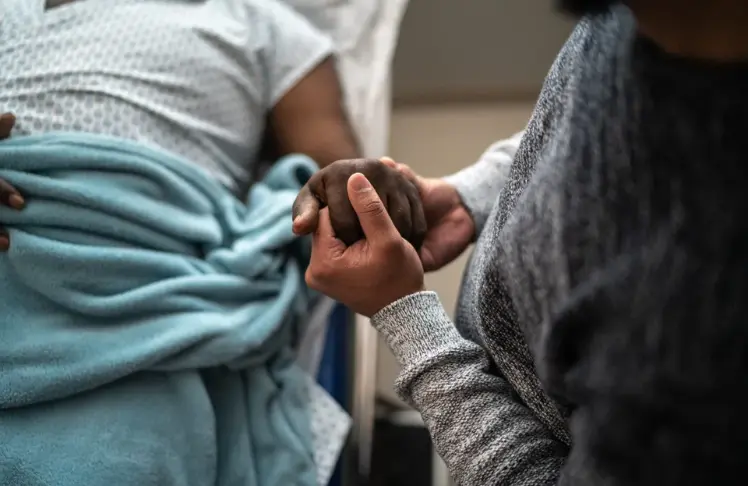
Efforts to advance racial equity in the American health care system continue to fall short. A new report by the Commonwealth Fund found that deep-seated racial and ethnic health disparities persist across the U.S., even in states with high-performing health care systems.
Some of the contributing factors to these widespread inequities are poverty rates, lack of affordable and quality health care options, medical debt, worse medical treatment for people of color, and housing segregation.
Unfortunately, this isn’t surprising.
Why this matters: Black Americans are dying at higher rates from preventable and treatable illnesses and diseases than other racial and ethnic groups.
Black, American Indian, and Alaska Native people historically have lower life expectancies compared to other groups in the U.S. However, the report found that preventable mortality rates are higher for both Black and white residents in several southern and south-central states —Arkansas, Mississippi, Louisiana, Tennessee, Kentucky, and Missouri.
There are differences in mortality rates for conditions that are considered treatable. For example, breast cancer is considered treatable when detected early but is more likely to be diagnosed at later stages among Black women, who have some of the highest death rates for this type of cancer.
Making things worse is the profound lack of access to health insurance. Even those with insurance face barriers to quality care. The report highlights a few interesting points about how Black and brown folks use the health care system:
- Black Medicare beneficiaries are more likely than white beneficiaries to be hospitalized for worsening symptoms of chronic conditions that are treatable and manageable with primary care.
- With lower incomes and fewer savings, Black, Hispanic, and AIAN people are more likely to report experiencing delays in their care or financial distress.
- Black Medicare beneficiaries are also more likely to seek and receive care in the emergency department for conditions that can be treated in a primary care setting.
What Policymakers Can Do: The report provides a detailed list of changes that can bridge the gap for communities most affected by racial inequities in health care. Here are a few of their recommendations.
- Ensure universal, affordable, and equitable health coverage. Policymakers could require insurers to collect and report information on race and ethnicity during enrollment and make it linkable to claims data.
- Strengthen primary care and improve the delivery of services. Diversify the health workforce by strengthening pipelines into the health professions for people of color and monitoring and chronicling the impact of policies on diversity in health care.
- Reduce inequitable administrative burdens affecting patients and providers. Congress could create a longer period of continuous Medicaid eligibility. Disruption in Medicaid coverage because of eligibility changes, administrative errors, and other factors can leave people uninsured and unable to get care.
- Invest in social services. Expand economic support for lower-income families, such as by expanding unemployment compensation, the Earned Income Tax Credit and child tax credit programs, and childcare, food security, and targeted wealth-building programs,
Bottom line: Black folks face worsening health outcomes because of barriers to access and poor medical treatment. But it doesn’t have to be that way. Increasing the amount of Black health care providers and streamlining access to culturally competent care can help bridge this gap.















